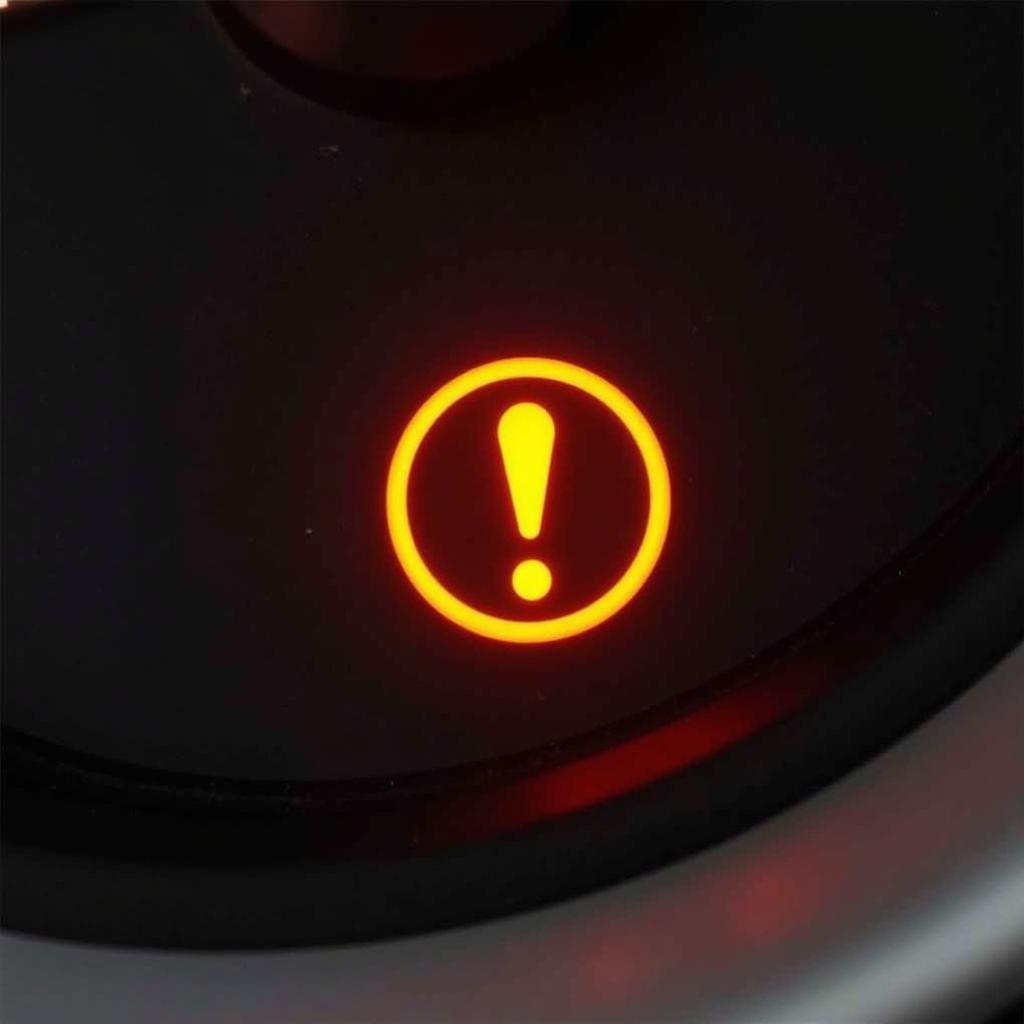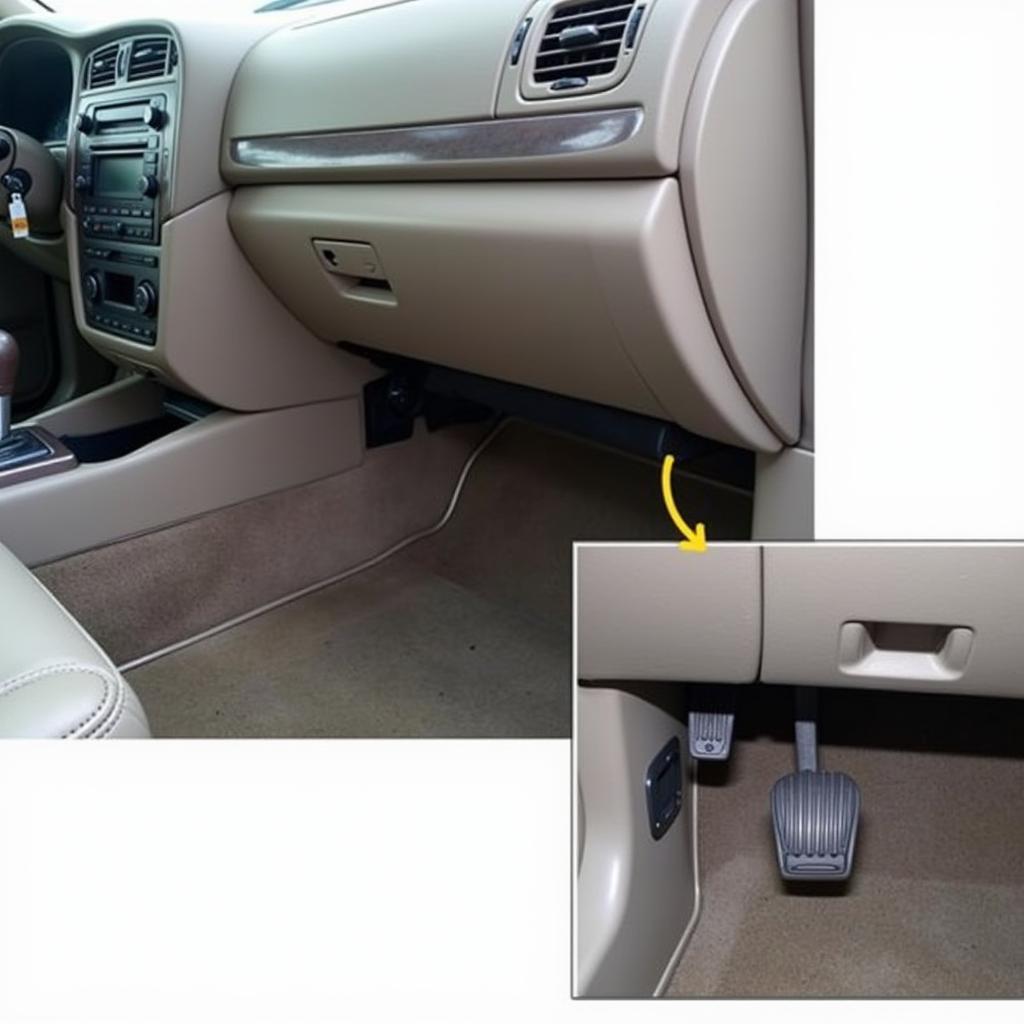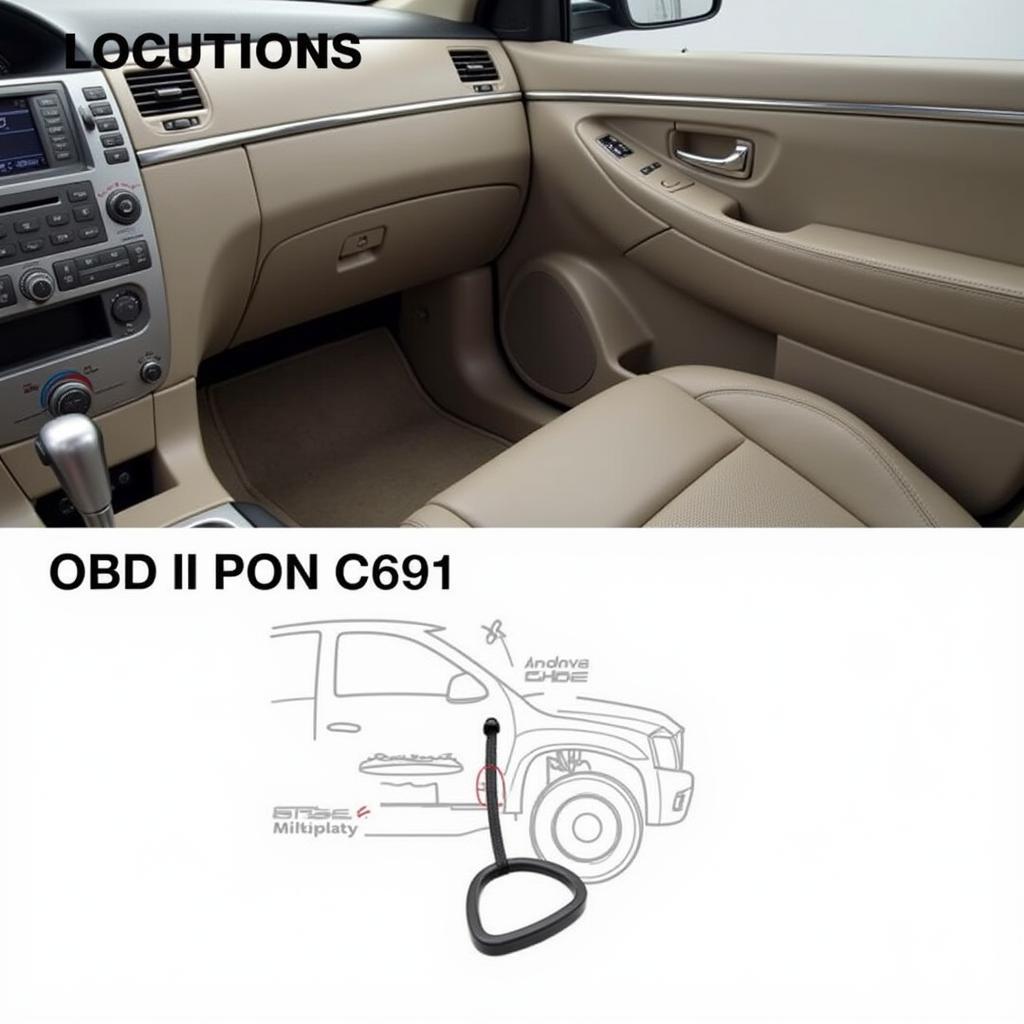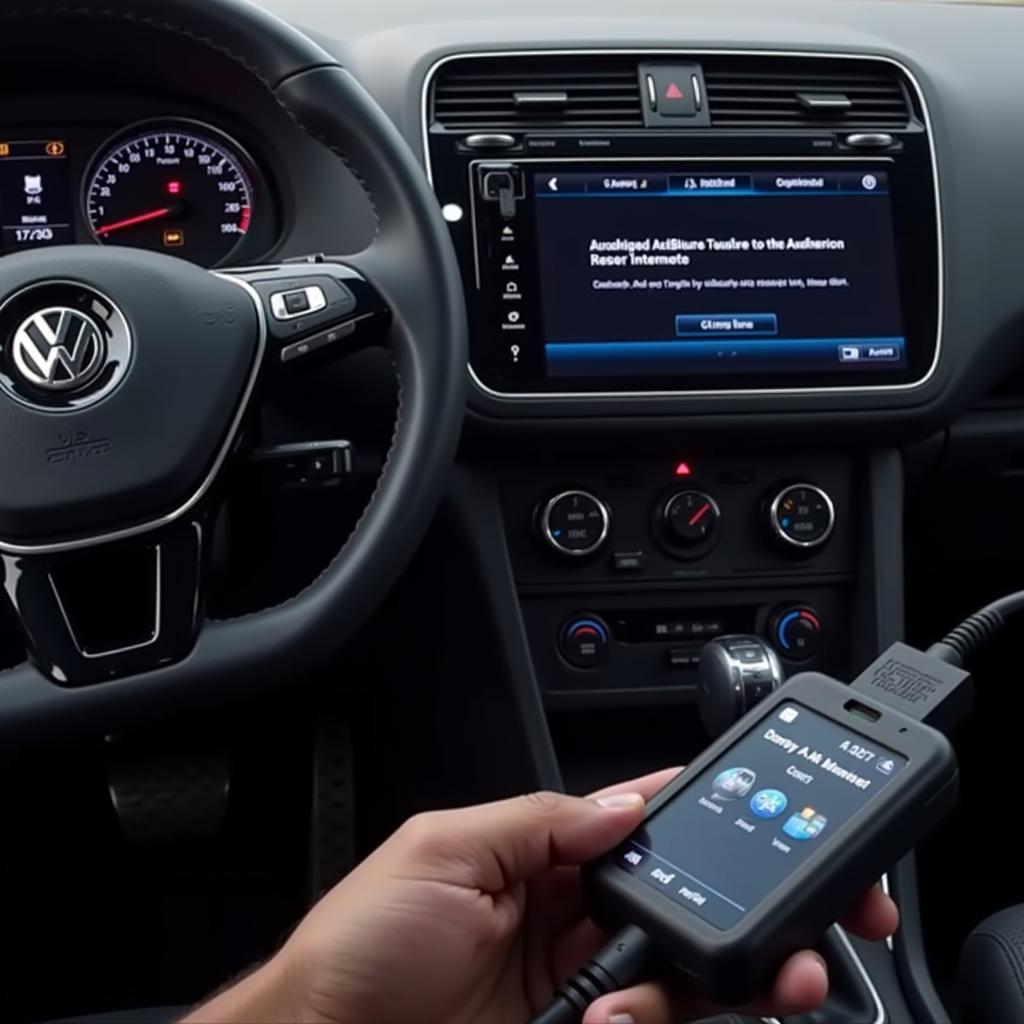Experiencing a brake warning alarm light up your dashboard while driving a 2001-2007 Buick Rendezvous can be a nerve-wracking experience. While it might seem like a major issue, there are a few common culprits that are relatively simple to diagnose and fix. Let’s dive into the possible reasons why your Buick Rendezvous is experiencing this issue and how to address them.
Understanding Your Buick Rendezvous Brake Warning System
Before we jump into the potential problems, it’s important to understand how your car’s brake warning system works. The system is designed to alert you of potential braking system malfunctions, ensuring your safety on the road.
The warning light on your dashboard is triggered by several components:
- Low brake fluid level: This is the most common cause. Your brake system relies on hydraulic pressure to function, and low fluid levels can severely compromise braking performance.
- Faulty brake light switch: The brake light switch activates your brake lights when you press the pedal. If it malfunctions, it can also trigger the brake warning light.
- Worn brake pads: Brake pads have wear indicators that create a screeching sound when they become too thin. This can also trigger the warning light.
- ABS (Anti-lock Braking System) issue: While less common, a problem with your ABS system can also trigger the brake warning light.
 Buick Rendezvous brake warning light on dashboard
Buick Rendezvous brake warning light on dashboard
Common Causes and Troubleshooting Tips
Low Brake Fluid
The first thing to check is your brake fluid level. Park your vehicle on a level surface and locate the brake fluid reservoir under the hood. The reservoir is typically translucent, allowing you to visually inspect the fluid level. If the fluid is below the “MIN” mark, it needs to be topped up.
Important: Use only the brake fluid type specified in your owner’s manual. Using the wrong type of fluid can damage your brake system.
If you’ve recently added brake fluid and the level is low again, it’s essential to check for leaks. Inspect the brake lines, hoses, and calipers for any signs of fluid leakage.
Faulty Brake Light Switch
A malfunctioning brake light switch can cause several issues, including triggering the brake warning light. To check if the switch is the culprit:
- Test the brake lights: Have someone press the brake pedal while you check if both brake lights are working.
- Inspect the switch: Located above the brake pedal arm, the switch is typically activated when the pedal is depressed. Listen for a clicking sound when the pedal is pressed and released. If you don’t hear a click, the switch may need replacement.
 Buick Rendezvous brake light switch location
Buick Rendezvous brake light switch location
Worn Brake Pads
Worn brake pads are a common cause of brake-related issues. If your brake pads are excessively worn, they can trigger the warning light. Listen for a high-pitched squealing noise when applying the brakes, as this is a common sign of worn pads.
It’s crucial to inspect your brake pads regularly. If you’re unsure about their condition, it’s best to have them checked by a qualified mechanic.
ABS Issues
While less prevalent, issues with your ABS system can trigger the brake warning light. If you suspect an ABS problem, it’s best to consult a qualified mechanic or use an OBD-II scanner to retrieve diagnostic trouble codes.
 Buick Rendezvous OBD-II port
Buick Rendezvous OBD-II port
When to Seek Professional Help
If you’ve checked the common culprits and the brake warning light persists, it’s crucial to seek professional assistance. A qualified mechanic can accurately diagnose and repair any underlying issues with your braking system, ensuring your safety on the road.
Expert Insight:
“Ignoring a brake warning light can have serious consequences,” says John Smith, a seasoned automotive technician with over 20 years of experience. “The braking system is critical for your safety, and any issues should be addressed promptly by a qualified professional.”
Conclusion
Experiencing a brake warning alarm in your 2001-2007 Buick Rendezvous can be alarming. However, by understanding the common causes and following these troubleshooting tips, you can often pinpoint the issue. Remember, your safety is paramount, so always seek professional help if you’re unsure about any aspect of your vehicle’s braking system. Don’t ignore a brake warning light—address it promptly to ensure safe and worry-free driving.


